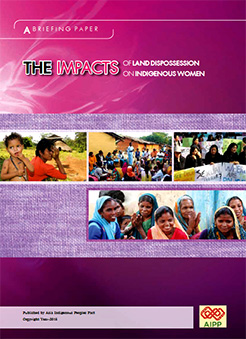International Day of the World’s Indigenous Peoples
Date:
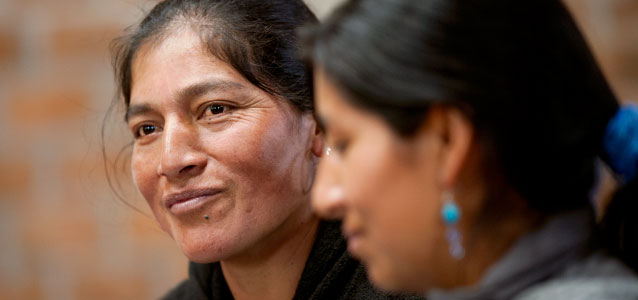
It is estimated that there are more than 370 million indigenous people across 70 countries worldwide. Indigenous women face many forms of discrimination and violence, both as women and as indigenous peoples, and face different obstacles in overcoming these issues daily.
The focus of this year's International Day of the World’s Indigenous Peoples [9 August] is “Post 2015 Agenda: Ensuring indigenous peoples health and well-being”. Indigenous women experience disproportionate difficulties in access to health care, as well as higher rates of maternal and infant mortality, malnutrition and infectious diseases such as tuberculosis and malaria. Though indigenous women are counted upon to support the health and well-being of their families, they often face hurdles to access the resources to build the foundation of a better life, such as education and land.
UN Women actively supports indigenous women around the world to ensure that their rights are respected and their concerns heard through our Fund for Gender Equality programmes to increase economic empowerment and political participation, UN Trust Fund grants to end violence against indigenous women and girls, or other targeted UN Women research or programmes.
Spotlight on Asia and the Pacific: An estimated 70 per cent of the world’s indigenous peoples live in Asia and the Pacific, and UN Women programmes and funds have been making a change in indigenous women’s lives through strengthening advocacy and information delivery about women’s rights.
Some of our work with indigenous women and girls:
Thailand – Losing ground
For many of the world's indigenous people, loss of their traditional lands threatens their very survival, and their cultures could simply disappear. In Thailand, indigenous women have joined the fight for justice - and for the future of their people. UNTV's 21st Century news magazine tells their story in this feature video produced for UN Women.
Indigenous women learn about their rights in the Philippines
Women and men of the Dibabawon indigenous people in the Philippines took part in training aimed at raising awareness among indigenous women and men on gender equality, in particular, strengthening their knowledge on the protection of women and children.
The Impacts of Land Dispossession on Indigenous Women
A project that strengthens advocacy for women’s rights to land in Cambodia, India and Indonesia recognizes the vital role of indigenous women in their communities.
In their own words:
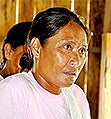
I did not know about the rights I am entitled to and had no idea about who and where to ask help when my rights are violated. Now I know and I will share this with other women in the community.
— Ms. Rebecca Tompong, 40 years-old, from Dibabawon tribe.
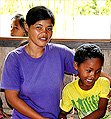
The training on violence against women and children has made me understand the rights of children. I will apply it to my children. Whenever my son throws a tantrum, I will not respond by hitting or hurting him, but instead talk and correct my child in the proper way.
— Ms. Mary Jane Sagubay, 30 years old from Dibabawon tribe.
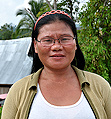
I learned that there are already laws implemented by the government protecting women’s rights. For me it means our government has now armed the women in society through these laws they implemented.
— Ms. Lolita Bundan, 51 years old, Bisaya
